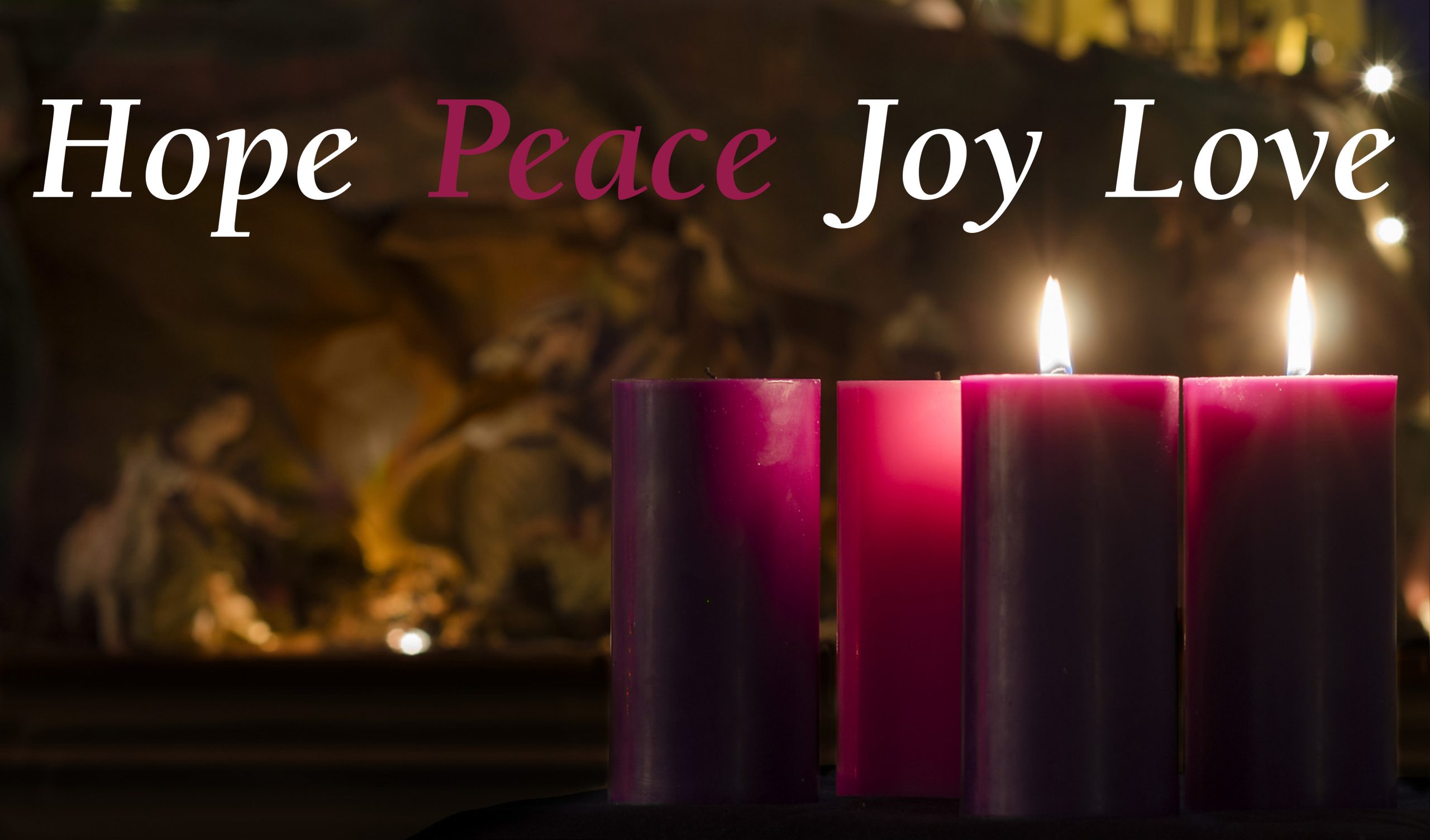Advent Week 2 — Leading a Peacemaking Life
By Sister Marilyn Sunderman
This is the second reflection in our 2019 Advent blog series.
Throughout this season of hope and anticipation, we invite you to subscribe to our blog and read along with us.
“How beautiful are the feet of those who preach the gospel of peace.” (Romans. 10:15)
Enemies beat swords into plowshares. Lions and lambs lie down together.These images describe what shalom is about: the experience of harmony between and among people and with and in nature. In and through his praxis of compassion and justice, Jesus embodied shalom. During his public ministry, Jesus taught his disciples: “Blessed are the peacemakers, for they shall be called the children of God.” (Matthew 5:9) On the day of his resurrection, Jesus’ first words to his apostles were: “Shalom: Peace to you.” (Luke 24:36)

Today, Jesus calls his followers to be emissaries of peace wherever they are and in whatever situation they find themselves. In the midst of the present-day global reality of terrorism, civil wars, human trafficking, the abuse of nature, and the economic, political and religious oppression of people, Jesus issues a clarion call to embrace his way of nonviolence, peace and justice. To follow Jesus is to be a peace-maker/builder in our global village, Earth.
This means being at peace within oneself and in harmonious relationship with others. Inner peace has an outward dimension that includes a just political and social order and ecological well-being.
Peace and justice are interwoven. To be a peacemaker entails protecting every person’s dignity and rights, practicing nonviolence on a daily basis, engaging in conflict resolution and contributing to collective efforts of peacebuilding. Peacemaking/peacebuilding is a lifetime commitment to nurturing life and working to achieve a just and sustainable world.
Following in the footsteps of Jesus, St. Francis of Assisi led a peacemaking/building life. At the beginning of every one of his public speeches, Francis greeted his audience with the words: “May the Lord give you peace.” Francis’ preaching of peace caused two noble families in Bologna to be reconciled. Likewise, Francis was instrumental in the re-establishment of peace between Bishop Guido II and the mayor of Assisi.
In their 1993 reflection, The Harvest of Justice Is Sown in Peace, the United States Catholic bishops focus on building a culture of peace. As the bishops indicate, to do so includes avoiding war, especially nuclear war; but, in a broader sense, it entails working as a global community to advance human rights and potential, laboring to establish and ensure life-enhancing religious, political, economic and social institutions and structures and the sustainability of Earth. Evidence of growth of such a culture would include a decrease in domestic violence and acts of terrorism, the reduction and eventual elimination of weapons of mass destruction, global demilitarization, and a greater use of conflict resolution to settle issues that alienate persons and nature on Earth.
Questions for reflection:
— In what way(s) can I make shalom real where I live?
— What contributions can we collectively make to the development of a culture of peace on Earth?
Resources: YouTube: The Seventh Beatitude: Being a Peacemaker; Spirituality of Peace Regarding Care of Creation; Prayer of St. Francis by Sarah McLachlan